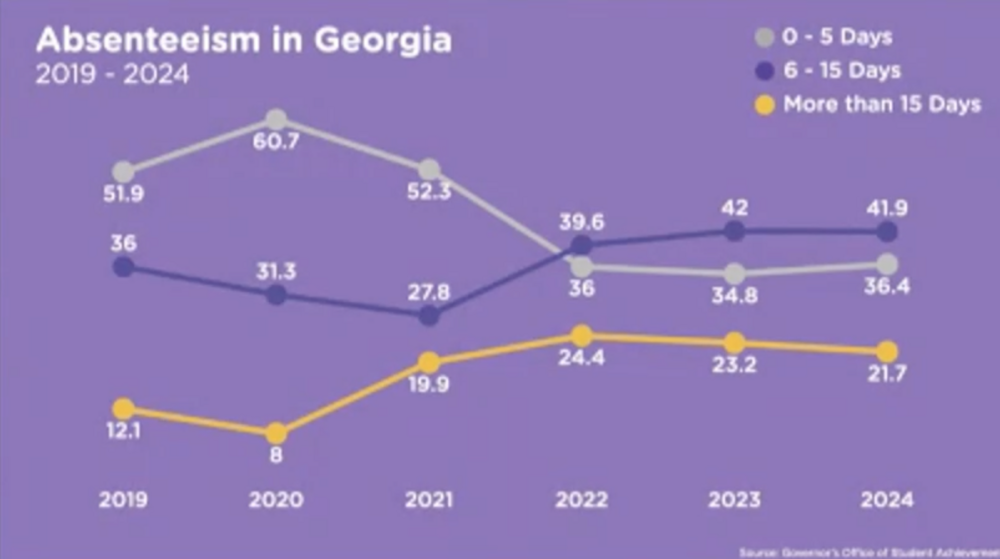
Section Branding
Header Content
Georgia House study committee looks at student absenteeism in schools
Primary Content

The state House Study Committee on Student Attendance in PreK-12 Education met on Tuesday to discuss the causes of chronic absenteeism in schools, as absence rates have increased since before the pandemic in Georgia.
Rep. Chris Erwin (R-Homer), who is the chairman of the House Education Committee, will lead this study committee.
"Our goal is to understand where we're at in the state of Georgia with student attendance, as well as the effect of not attending school on learning for that child and affecting them all the way through adulthood," Erwin said at the meeting.
The committee will explore ways to improve student attendance and learning.
In their first meeting, they looked at the chronic absentee rates by school year.
Dr. Garry McGiboney, a former deputy superintendent of the Georgia Department of Education, is the chair of the Georgia Reading Cabinet's Student Attendance Subcommittee.
He delivered a presentation based on a six-month study conducted by the Student Attendance Subcommittee, which found that students' absences continued to come to their attention during their study of literacy rates.
"Regular school attendance is closely linked to higher academic achievement, graduation rates, and the development of a skilled workforce — all of which are critical factors for economic growth and quality of life," he said.
Based on data, research, surveys, and other sources, the Student Attendance Subcommittee created a report identifying factors related to student absence and outlining actions that can be taken to reduce absences.

The report found that 21% of Georgia students are missing three weeks of school or more during the school year, which is double the amount of time missed before the pandemic. Over 40% of students are missing six to 15 days of school per year.
McGiboney shared that research shows significant learning loss after the fifth day of absence — cumulatively, not consecutively.
"When you add the blue line and the yellow line together, lost learning is happening to over 60% of our students," he said, citing the chart in his presentation. "Perhaps that's one of the reasons why only 38% of our third graders are reading proficiently."
The subcommittee collaborated with the Atlanta Regional Commission, which found that a 5% decrease in absences would lead to a 6.6% increase in third-grade ELA proficiency in Georgia, from 38.4% to 45%.
"This would be a dramatic increase, an almost unheard-of improvement, and would move Georgia up significantly in the national rankings," McGiboney said. "But more importantly, it would mean thousands, if not more, students would be reading more proficiently by the end of third grade."
The subcommittee sought to identify effective strategies for improving attendance and found strategies used in Georgia and other states that were effective.
Some schools are tracking daily attendance and implementing early warning systems to alert staff and parents when students are at risk of learning loss during absences.
"Early detection helps schools intervene before absenteeism becomes a problem," McGiboney said.
The committee has tentatively planned its next meeting for Sept. 22.
"This is a very worthy topic that could impact tens of thousands of children, so I take this very seriously," Erwin said at the end of the hearing. "Whatever we can do to help school systems attain their goal of 100% attendance, let's get everybody there and let's get them learning.

